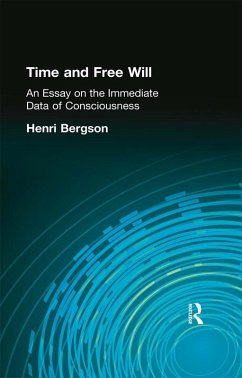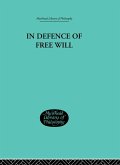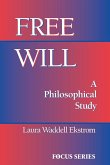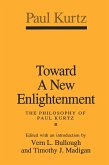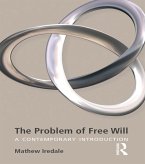47,95 €
47,95 €
inkl. MwSt.
Sofort per Download lieferbar

24 °P sammeln
47,95 €
Als Download kaufen

47,95 €
inkl. MwSt.
Sofort per Download lieferbar

24 °P sammeln
Jetzt verschenken
Alle Infos zum eBook verschenken
47,95 €
inkl. MwSt.
Sofort per Download lieferbar
Alle Infos zum eBook verschenken

24 °P sammeln
- Format: ePub
- Merkliste
- Auf die Merkliste
- Bewerten Bewerten
- Teilen
- Produkt teilen
- Produkterinnerung
- Produkterinnerung

Bitte loggen Sie sich zunächst in Ihr Kundenkonto ein oder registrieren Sie sich bei
bücher.de, um das eBook-Abo tolino select nutzen zu können.
Hier können Sie sich einloggen
Hier können Sie sich einloggen
Sie sind bereits eingeloggt. Klicken Sie auf 2. tolino select Abo, um fortzufahren.

Bitte loggen Sie sich zunächst in Ihr Kundenkonto ein oder registrieren Sie sich bei bücher.de, um das eBook-Abo tolino select nutzen zu können.
First published in 2002. Routledge is an imprint of Taylor & Francis, an informa company.
- Geräte: eReader
- mit Kopierschutz
- eBook Hilfe
- Größe: 0.41MB
Andere Kunden interessierten sich auch für
![In Defence of Free Will (eBook, ePUB) In Defence of Free Will (eBook, ePUB)]() C A CampbellIn Defence of Free Will (eBook, ePUB)48,95 €
C A CampbellIn Defence of Free Will (eBook, ePUB)48,95 €![Time and Idea (eBook, ePUB) Time and Idea (eBook, ePUB)]() A. CaponigriTime and Idea (eBook, ePUB)49,95 €
A. CaponigriTime and Idea (eBook, ePUB)49,95 €![Free Will (eBook, ePUB) Free Will (eBook, ePUB)]() Laura EkstromFree Will (eBook, ePUB)47,95 €
Laura EkstromFree Will (eBook, ePUB)47,95 €![Toward a New Enlightenment (eBook, ePUB) Toward a New Enlightenment (eBook, ePUB)]() Toward a New Enlightenment (eBook, ePUB)48,95 €
Toward a New Enlightenment (eBook, ePUB)48,95 €![Adam Ferguson (eBook, ePUB) Adam Ferguson (eBook, ePUB)]() David KettlerAdam Ferguson (eBook, ePUB)49,95 €
David KettlerAdam Ferguson (eBook, ePUB)49,95 €![On Enlightenment (eBook, ePUB) On Enlightenment (eBook, ePUB)]() David StoveOn Enlightenment (eBook, ePUB)48,95 €
David StoveOn Enlightenment (eBook, ePUB)48,95 €![The Problem of Free Will (eBook, ePUB) The Problem of Free Will (eBook, ePUB)]() Mathew IredaleThe Problem of Free Will (eBook, ePUB)40,95 €
Mathew IredaleThe Problem of Free Will (eBook, ePUB)40,95 €-
-
-
First published in 2002. Routledge is an imprint of Taylor & Francis, an informa company.
Dieser Download kann aus rechtlichen Gründen nur mit Rechnungsadresse in A, B, BG, CY, CZ, D, DK, EW, E, FIN, F, GR, HR, H, IRL, I, LT, L, LR, M, NL, PL, P, R, S, SLO, SK ausgeliefert werden.
Produktdetails
- Produktdetails
- Verlag: Taylor & Francis eBooks
- Seitenzahl: 280
- Erscheinungstermin: 3. Juni 2014
- Englisch
- ISBN-13: 9781317852315
- Artikelnr.: 41066813
- Verlag: Taylor & Francis eBooks
- Seitenzahl: 280
- Erscheinungstermin: 3. Juni 2014
- Englisch
- ISBN-13: 9781317852315
- Artikelnr.: 41066813
- Herstellerkennzeichnung Die Herstellerinformationen sind derzeit nicht verfügbar.
Henri Bergson
.jpg)
Chapter I The Intensity of Psychic States; Chapter II 1I had already
completed the present work when I read in the Critique philosophique (for
1883 and 1884) F. Pillon's very remarkable refutation of an interesting
article by G. Noel on the interconnexion of the notions of number and
space. But I have not found it necessary to make any alterations in the
following pages, seeing that Pillon does not distinguish between time as
quality and time as quantity, between the multiplicity of juxtaposition and
that of interpenetration. Without this vital distinction, which it is the
chief aim of the present chapter to establish, it would be possible to
maintain, with Pillon, that number may be built up from the relation of
co-existence. But what is here meant by co-existence ? If the co-existing
terms form an organic whole, they will never lead us to the notion of
number; if they remain distinct, they are in juxtaposition and we are
dealing with space. It is no use to quote the example of simultaneous
impressions received by several senses. We either leave these sensations
their specific differences, which amounts to saying that we do not count
them; or else we eliminate their differences, and then how are we to
distinguish them if not by their position or that of their symbols ? We
shall see that the verb " to distinguish " has two meanings, the one
qualitative, the other quantitative : these two meanings have been
confused, in my opinion, by the philosophers who have dealt with the
relations between number and space. The Idea of Duration; Chapter III The
Organization of Conscious States Free Will; Conclusion;
completed the present work when I read in the Critique philosophique (for
1883 and 1884) F. Pillon's very remarkable refutation of an interesting
article by G. Noel on the interconnexion of the notions of number and
space. But I have not found it necessary to make any alterations in the
following pages, seeing that Pillon does not distinguish between time as
quality and time as quantity, between the multiplicity of juxtaposition and
that of interpenetration. Without this vital distinction, which it is the
chief aim of the present chapter to establish, it would be possible to
maintain, with Pillon, that number may be built up from the relation of
co-existence. But what is here meant by co-existence ? If the co-existing
terms form an organic whole, they will never lead us to the notion of
number; if they remain distinct, they are in juxtaposition and we are
dealing with space. It is no use to quote the example of simultaneous
impressions received by several senses. We either leave these sensations
their specific differences, which amounts to saying that we do not count
them; or else we eliminate their differences, and then how are we to
distinguish them if not by their position or that of their symbols ? We
shall see that the verb " to distinguish " has two meanings, the one
qualitative, the other quantitative : these two meanings have been
confused, in my opinion, by the philosophers who have dealt with the
relations between number and space. The Idea of Duration; Chapter III The
Organization of Conscious States Free Will; Conclusion;
Chapter I The Intensity of Psychic States; Chapter II 1I had already
completed the present work when I read in the Critique philosophique (for
1883 and 1884) F. Pillon's very remarkable refutation of an interesting
article by G. Noel on the interconnexion of the notions of number and
space. But I have not found it necessary to make any alterations in the
following pages, seeing that Pillon does not distinguish between time as
quality and time as quantity, between the multiplicity of juxtaposition and
that of interpenetration. Without this vital distinction, which it is the
chief aim of the present chapter to establish, it would be possible to
maintain, with Pillon, that number may be built up from the relation of
co-existence. But what is here meant by co-existence ? If the co-existing
terms form an organic whole, they will never lead us to the notion of
number; if they remain distinct, they are in juxtaposition and we are
dealing with space. It is no use to quote the example of simultaneous
impressions received by several senses. We either leave these sensations
their specific differences, which amounts to saying that we do not count
them; or else we eliminate their differences, and then how are we to
distinguish them if not by their position or that of their symbols ? We
shall see that the verb " to distinguish " has two meanings, the one
qualitative, the other quantitative : these two meanings have been
confused, in my opinion, by the philosophers who have dealt with the
relations between number and space. The Idea of Duration; Chapter III The
Organization of Conscious States Free Will; Conclusion;
completed the present work when I read in the Critique philosophique (for
1883 and 1884) F. Pillon's very remarkable refutation of an interesting
article by G. Noel on the interconnexion of the notions of number and
space. But I have not found it necessary to make any alterations in the
following pages, seeing that Pillon does not distinguish between time as
quality and time as quantity, between the multiplicity of juxtaposition and
that of interpenetration. Without this vital distinction, which it is the
chief aim of the present chapter to establish, it would be possible to
maintain, with Pillon, that number may be built up from the relation of
co-existence. But what is here meant by co-existence ? If the co-existing
terms form an organic whole, they will never lead us to the notion of
number; if they remain distinct, they are in juxtaposition and we are
dealing with space. It is no use to quote the example of simultaneous
impressions received by several senses. We either leave these sensations
their specific differences, which amounts to saying that we do not count
them; or else we eliminate their differences, and then how are we to
distinguish them if not by their position or that of their symbols ? We
shall see that the verb " to distinguish " has two meanings, the one
qualitative, the other quantitative : these two meanings have been
confused, in my opinion, by the philosophers who have dealt with the
relations between number and space. The Idea of Duration; Chapter III The
Organization of Conscious States Free Will; Conclusion;
